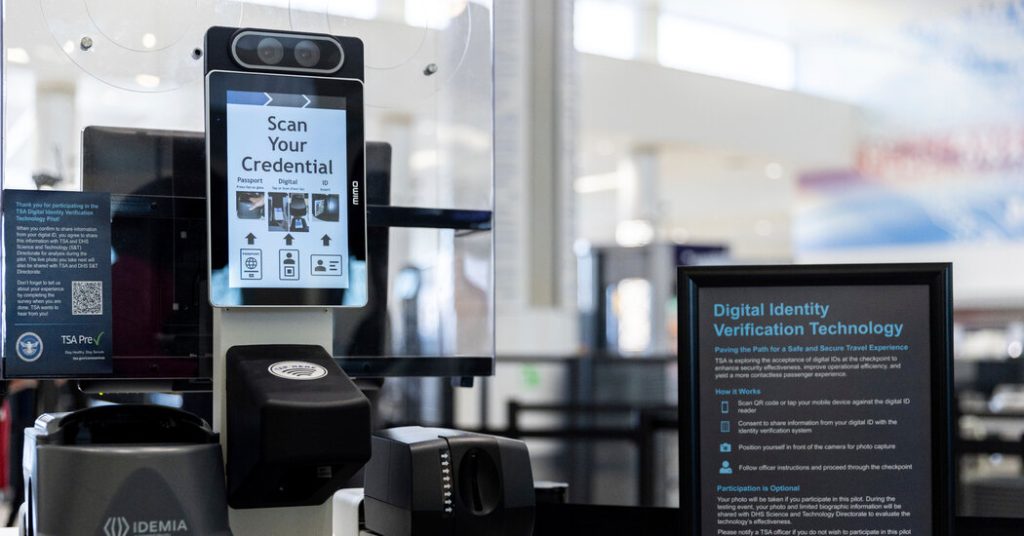A bipartisan group of senators is advocating for restrictions on the expansion of facial recognition technology at airports as part of the Federal Aviation Administration reauthorization bill. Senators Jeff Merkley and John Kennedy are proposing to delay the technology until 2027 and ensure that passengers are aware they can opt out of it. The proposal has sparked a debate between privacy advocates and industry groups who see the technology as a way to streamline airport check-ins and improve security.
The Federal Aviation Administration is planning to expand facial recognition technology to over 430 airports, using kiosks with iPads to match passengers’ faces with a government database instead of physical IDs. Senator Merkley expressed concern after encountering the technology at Reagan National Airport, where passengers felt pressured to comply with facial scans. The U.S. Travel Association warns that limiting the technology could lead to longer security lines and potential national security risks.
Mr. Merkley refuted the concerns raised by the travel lobby, emphasizing that his amendment would maintain the current state of affairs without causing delays. He highlighted civil liberties issues, arguing that individuals should not be required to have their photographs taken without consent or have their faces added to a growing government database. He expressed apprehension about the inaccuracy and error rates of facial recognition technology and its potential for misuse.
Senator Merkley and others sent a letter to Senator Chuck Schumer, urging Congress to prohibit the TSA from developing and deploying facial recognition tools without thorough oversight. The group of lawmakers includes both Democrats and Republicans known for their work on civil liberties issues. While the amendment has been included in the list of proposals to be voted on before the bill passes, Senator Schumer has not publicly taken a stance on it. Senator Kennedy raised concerns about potential abuse of data and unauthorized collection of biometrics by government workers.
Lisa Gilbert of Public Citizen has been advocating for the amendment, arguing that the claims of increased safety and efficiency with facial recognition technology lack supporting evidence. She highlighted the privacy implications and how travelers’ data could be utilized without their consent. The debate over facial recognition technology at airports reflects broader concerns about surveillance, civil liberties, and government overreach. The outcome of this legislative effort will have implications for the future of airport security practices and the protection of individuals’ rights.


